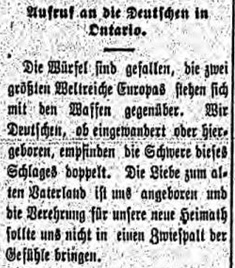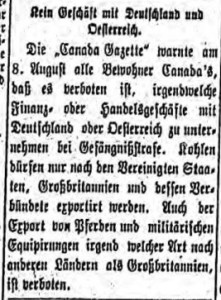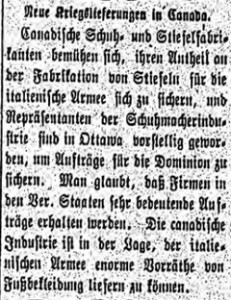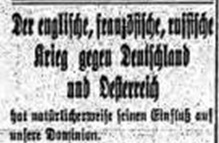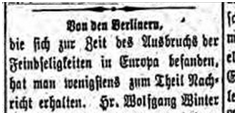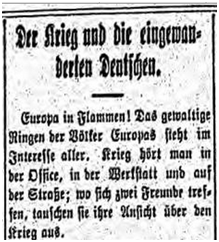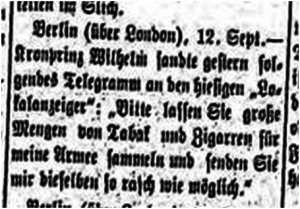Almost immediately following the outbreak of war, rumours began to surface about two supposed German spies operating in Canada. Already, but August 12, 1914, several German reservists living in Canada were arrested and interrogated about their plans during the war. If they wouldn’t tell the authorities anything, they would be imprisoned.
This was just the beginning of a trend in Canada in which men were accused of being supposed German spies, and the numbers of wrongly arrested Germans grew throughout the war. Later on, the Berliner Journal reported on separate attacks on a railroad bridge between Maine and New Brunswick and a dynamite explosion in Walkerville in 1915. Germans were immediately suspected in both cases.
When the war began, immigration from Germany ceased abruptly and before the war’s end some 8,500 German-Canadians and Austro-Hungarians would be interned at prison camps and work camps in Canada. (McLaughlin, K.M. The Germans in Canada. Ottawa: Keystone Printing & Lithographing Ltd., 1985. Print. P. 12)
An article from December, 2nd 1914 in German and English told the readers how to behave with supposed spies and gave rules about what to do, when someone seemed to be a spy.
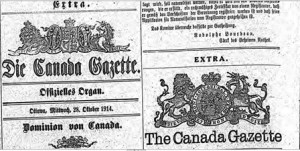
(“Deutsche Spione in Petawawa verhaftet”, Berliner Journal, 12 August 1914; McLaughlin, K.M. The Germans in Canada. Ottawa: Keystone Printing & Lithographing Ltd., 1985. Print. P. 12; „Die Canada Gazette“, Berliner Journal, 2 December 1914; „Am vorigen Dienstag…“, Berliner Journal, 10 February 1915; „Dynamit-Explosion in Walkerville“, Berliner Journal, 23 June 1915)
